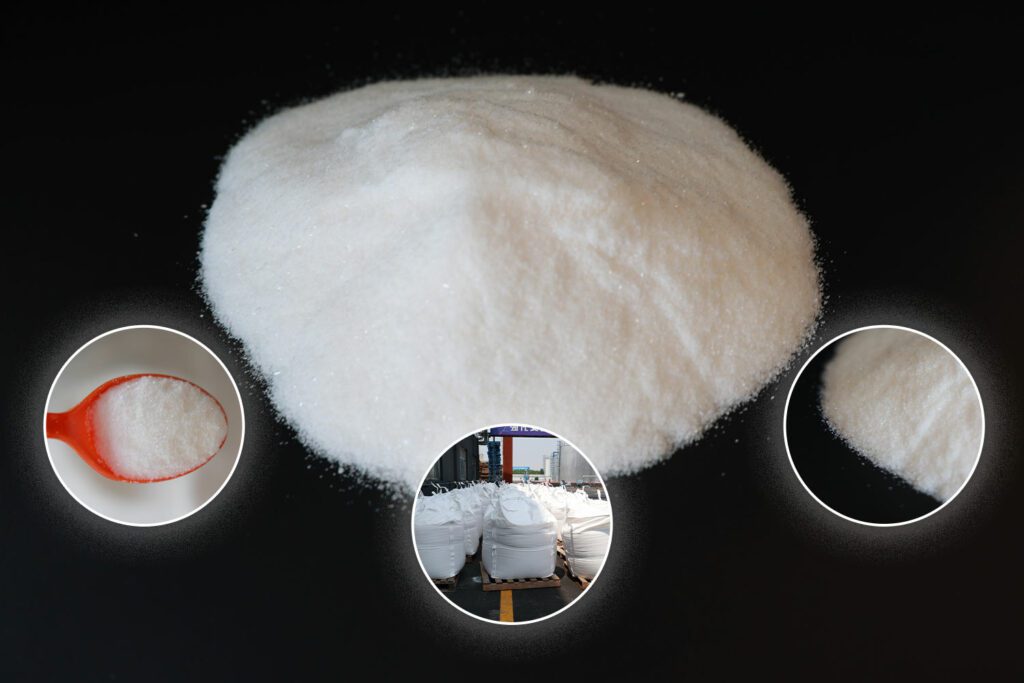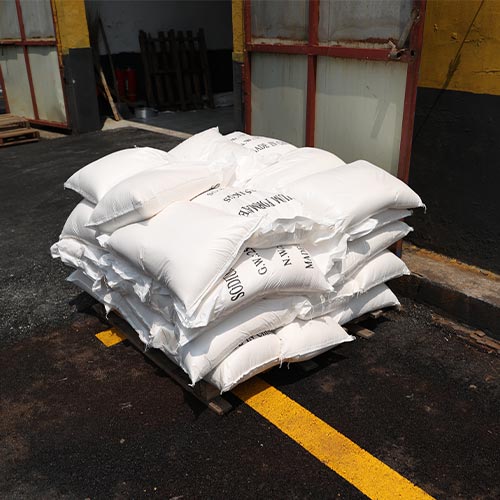pengantar
Snow and ice removal are essential activities for maintaining safe and accessible roads, sidewalks, and other surfaces during the winter months. However, traditional deicing methods, such as using sodium chloride (NaCl), can have negative environmental impacts, including water pollution, soil contamination, and harm to vegetation.
Sodium formate (NaHCO2) is a promising alternative deicing agent that offers several environmental and performance benefits over NaCl. This blog post will explore the benefits of sodium formate deicing, provide a comparison of sodium formate and NaCl, and address frequently asked questions about this sustainable approach to snow removal.
Benefits of Sodium Formate Deicing

Sodium formate deicing offers several advantages over traditional NaCl deicing methods:
- Mengurangi Dampak Lingkungan: Sodium formate is less toxic to aquatic life and plants than NaCl. It also biodegrades more readily, minimizing the risk of long-term environmental damage.
- Enhanced Corrosion Protection: Sodium formate is less corrosive than NaCl, extending the lifespan of infrastructure and vehicles.
- Effective at Lower Temperatures: Sodium formate remains effective in colder temperatures than NaCl, providing better snow and ice removal performance in extreme conditions.
- Safe for Vegetation: Sodium formate is less harmful to vegetation than NaCl, reducing the risk of damage to landscaping and roadside plants.
- Pet-Friendly: Sodium formate is less irritating to paws and skin than NaCl, making it a safer choice for pet owners.
How Sodium Formate Works
Sodium formate works by lowering the freezing point of water, allowing it to effectively melt ice and snow on roads, runways, and other surfaces. Its unique properties make it an efficient and cost-effective solution for winter maintenance.
Case Studies: Sodium Formate in Action
We will examine real-world examples of sodium formate deicing applications, highlighting its effectiveness in various settings and climates. From municipal roadways to airport runways, sodium formate has proven to be a reliable and sustainable choice for snow and ice management.
Comparison of Sodium Formate and NaCl
| Feature | natrium format | Natrium Klorida (NaCl) |
|---|---|---|
| Dampak lingkungan | Lower toxicity, higher biodegradability | Higher toxicity, lower biodegradability |
| Corrosion Protection | Less corrosive | More corrosive |
| Effectiveness at Lower Temperatures | Effective in colder temperatures | Less effective in colder temperatures |
| Impact on Vegetation | Less harmful to vegetation | More harmful to vegetation |
| Pet Friendliness | Less irritating to paws and skin | More irritating to paws and skin |
Performance of Sodium Formate Deicing

Studies have demonstrated the effectiveness of sodium formate deicing in various conditions. For instance, a study by the Minnesota Department of Transportation found that sodium formate was as effective as NaCl in removing snow and ice, but with reduced environmental impact.
Another study, conducted by the University of Connecticut, compared the corrosion rates of steel exposed to sodium formate and NaCl. The results showed that sodium formate caused significantly less corrosion than NaCl, indicating its potential to extend the lifespan of infrastructure.
Teknik Aplikasi
Proper application techniques are essential to ensure the effectiveness of sodium formate deicing while minimizing waste and environmental impact. Here are some best practices:
Pre-treatment: Apply sodium formate before snowfall or ice formation to prevent accumulation on surfaces.
Even Distribution: Use calibrated spreaders to ensure uniform distribution of sodium formate on roads and walkways.
Monitoring and Adjustment: Regularly monitor weather conditions and adjust application rates accordingly to optimize effectiveness.
Post-Application Evaluation: Assess the results of sodium formate deicing operations to identify areas for improvement and refine future application strategies.
Kesimpulan
Sodium formate deicing offers a sustainable and effective alternative to traditional NaCl deicing methods. Its lower environmental impact, enhanced corrosion protection, and effectiveness in cold temperatures make it an attractive choice for municipalities, businesses, and individuals seeking eco-friendly snow removal solutions.
As research continues to demonstrate the benefits of sodium formate deicing, we can expect to see wider adoption of this sustainable approach in the years to come. By embracing sodium formate deicing, we can help protect our environment while maintaining safe and accessible roads, sidewalks, and other surfaces during the winter months.
FAQ
Q: Is sodium formate more expensive than NaCl?
A: The cost of sodium formate deicing agents has been decreasing in recent years, and they are now becoming more competitive with NaCl. In some cases, sodium formate may even be less expensive than NaCl due to its lower application rates and reduced environmental impact.
Q: Is sodium formate safe to use around pets?
A: Yes, sodium formate is generally considered safe for pets. It is less irritating to paws and skin than NaCl, and it is less likely to cause stomach upset if ingested. However, it is always a good practice to keep pets away from deicing agents of any kind.
Q: How do I apply sodium formate deicing agents?
A: Sodium formate deicing agents can be applied in the same way as NaCl deicing agents. They can be spread manually or using a spreader truck. The application rate will vary depending on the severity of the snow or ice accumulation.


